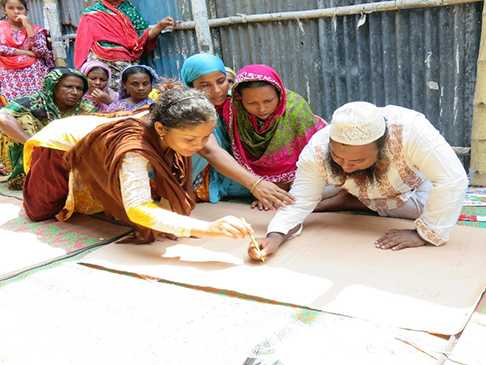Impact stories
In urban slums in Dhaka, Bangladesh, problems such as water logging, sanitation, inadequate housing, water supply, risk of fire and waste management are common and need intervention. Habitat for Humanity's Building Urban Resiliency project works with communities in Dhaka to identify the hazards and risks of living in their slum, then supports each community to address their prioritised needs and provide hardware and training. Through the project, the communities are gaining access to improved water, sanitation and waste management services.
Lima was born in one of Bangladesh's biggest slums and has lived there her entire life. In her 25 years, Lima has faced poor living conditions, overcrowding and lack of access to clean water and sanitation everyday.
"There are lots of problems in slum," says Lima, "But we don't know how to solve the issues and don't have the training."
Lima joined a Habitat-facilitated water and sanitation committee and has been involved in vulnerability assessments of the slum to identify risks and hazards. Then, working with Habitat, the community will come up with ways to implement solutions.
"This is a good start for me to be part of something innovative," said Lima. "On the committee I was given knowledge on how to find out the risks in our community. We are now more aware of the hazards and what we should do. "
Lima has always been passionate about community health and education and wants more people to become aware of the importance of clean water and hygiene. She believes engaging the community and working together will open a "door of happiness." Through this, she believes families will be healthier, safer, empowered and more resilient once the hazards in their community are identified and resolved.
Habitat for Humanity is supported by the Australian Government through the Australian NGO Cooperation Program (ANCP).

